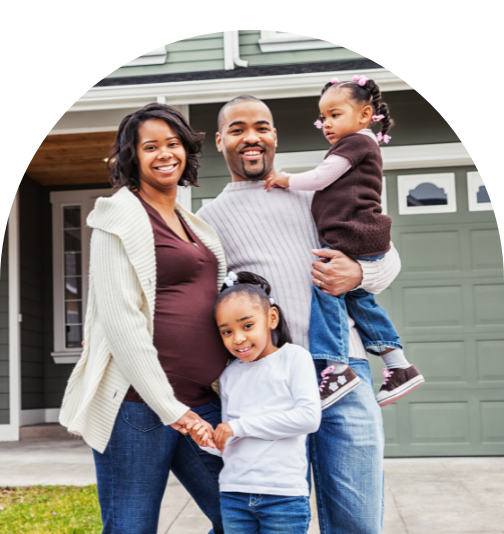What to do from morning till night to improve your chances of getting pregnant
When you’ve been trying to get pregnant for a while, the amount of advice and “to-dos” can feel super overwhelming. The longer the delay, the faster you want it to happen. However, the reality is that resolving the underlying factors blocking your pregnancy dreams, such as hormonal imbalances, nutrient deficiencies, chronic diseases, and environmental toxins, does take time. When you address those root causes during the preconception period, you skyrocket your chances of getting and staying pregnant naturally. Plus, if you decide to go with advanced interventions like IUI or IVF, you’re improving your odds there, too!
To help you resolve the overwhelm and simplify the process, we’ve put together a guide that breaks down the steps you should take each day to amplify your natural fertility and improve your pregnancy outcomes.
Morning Routine for Fertility
Set your alarm and complete your BBT tracking upon waking.
Track your basal body temperature (BBT) every day, ensuring it’s at the same time every morning. BBT is your body’s lowest resting temperature, typically occurring during sleep. It slightly rises after ovulation due to increased progesterone levels. Tracking BBT at the same time daily, before any activity, provides the most accurate data for identifying your fertile window [2].
One tip to stay consistent with your daily BBT tracking is to keep a thermometer beside your bed; when the alarm goes off, the thermometer goes in! We like the Tempdrop Monitor armband, which makes BBT tracking 1000x easier than the old-fashioned thermometer method. You’ll also get 15% off when you use that link.
Drink a glass of warm lemon water.
Warm lemon water helps get your digestive system going, supports your liver, and helps your body eliminate toxic substances [3]. It may help balance pH levels in the body, creating a more hospitable environment for sperm and potentially improving fertility. Now, you might be wondering, “Why warm water?” Well, warm water is preferable to cold water because it’s less shocking to your system first thing in the morning and may be more easily absorbed [4].
You’ll want to start the detoxification process first thing in the morning, as your liver’s been working overtime to clear out toxins while you slept. These pollutants can interfere with hormone production and metabolism, potentially disrupting your reproductive system. Drinking warm water with lemon helps support your body’s natural detoxification processes, including eliminating waste products. By supporting these processes, you’re setting the stage for a more fertility-friendly environment.
Lemon water also gives you a good dose of vitamin C, which supports the production of cervical mucus, which is crucial for sperm transport [5]. It’s also vital for healthy skin, a strong immune system, and keeping your brain sharp [6].
Expose yourself to full-spectrum, natural light within the first 30 minutes of waking.
Exposure to full-spectrum, natural light within the first 30 minutes of waking is critical for regulating your body’s internal clock and optimizing your circadian rhythm. Your circadian rhythm is your body’s internal 24-hour clock that regulates many different processes, including your sleep/wake cycle, appetite and digestion, the timing of ovulation, and the production of reproductive hormones [7].
Early morning sunlight exposure also helps your body produce vitamin D, which is crucial to fertility. Vitamin D assists in the production of estrogen and progesterone, and having adequate levels of Vitamin D has been associated with improved pregnancy rates [8]. For optimal results, try to get 10-15 minutes of direct sunlight exposure in the morning.
Activate your parasympathetic nervous system early.
One of the biggest risk factors for fertility problems is stress. Many people even stress in their sleep! Research shows that poor sleep quality—including waking up frequently or having vivid dreams, which is common in people with mental health issues like anxiety—can spike your cortisol levels and crank up your stress responses, even if you’re not consciously aware of it. This nighttime stress can negatively impact fertility by disrupting hormonal balance and menstrual regularity [9].
Carrying too much stress is like trying to drive with the parking brake on – it makes everything harder, including getting pregnant. Stress can lead to irregular cycles or even anovulation (when your body decides to skip ovulation altogether). Chronic stress can keep your cortisol levels sky-high, which can interfere with the production of crucial reproductive hormones like estrogen, progesterone, and testosterone [10].
Cortisol naturally rises in the morning, as one of its jobs is to wake you up. While that’s great when at normal levels, way too many of us are carrying around low-grade stress throughout the day. To counteract this, try incorporating some early-morning activities that tap into your “rest and digest” mode (AKA: your parasympathetic nervous system), which serves as an antidote to sympathetic nervous system activation triggered by stress. An increasingly popular technique to activate the the parasympathetic nervous system is vagal toning (such as gargling, humming, or deep, slow breathing). These techniques to stimulate your vagus nerve, which acts as a natural “stress-relief switch” in your body, helping to promote reproductive health and overall well-being [11].
Do some gentle morning movement.
Aim for 15-20 minutes of gentle physical activity in the morning, as moving your body helps reduce emotional stress, gets your blood flowing, and helps you relax [12]. Gentle exercises that can improve fertility include yoga, which has been shown to reduce stress and balance hormones [13], and walking, which can improve blood flow to reproductive organs.
Eat a fertility-friendly breakfast.
Make a breakfast packed with fertility-boosting nutrients, including protein, healthy fats, and complex carbs. Maintaining a healthy weight is crucial for optimal fertility and pregnancy outcomes.
Here are some fertility-friendly breakfast ideas:
- Spinach and mushroom omelet with avocado and sweet potato hash. This combo is rich in folate, vitamin E, and fiber – all of which are crucial in the preconception period.
- Chia seed pudding with berries, nuts, and a sprinkle of cinnamon. This breakfast delivers omega-3 fatty acids, antioxidants, and blood sugar-stabilizing properties you need when preparing to conceive.
- A smoothie made with leafy greens, frozen berries, nut butter, and a scoop of protein powder offers a blend of vitamins, minerals, and protein to support ovarian function. Greens are full of essential nutrients like folate, iron, and antioxidants. Adding greens to your smoothie may make it look ugly, but their taste is usually subtle, allowing you to enjoy these essential nutrients simply and easily.
Remember, eating a wide variety of colorful fruits and veggies gives you a wide range of antioxidants that help combat oxidative stress, which can negatively impact both male and female reproductive systems [14].
Healthy fats, like those found in avocados, nuts, seeds, and olive oil, are essential for making hormones and keeping your cells healthy.
And be sure to take your prenatal vitamins to ensure you get enough folic acid, vitamin D, and other essential nutrients for fetal development. Folic acid supplementation is particularly important in preventing neural tube defects like spina bifida [15].
Get ready for the day with low- or no-chemical products.
Tackling the toxins in your environment can seem daunting, but one of the easiest ways to start is by getting them out of your daily routine. Check this out: For many women of reproductive age, the simple act of getting ready for work means exposure to up to 168 chemicals [16]!
Switching to non-toxic products reduces the impact of potentially harmful chemicals such as parabens, phthalates, sulfates, and synthetic fragrances. These endocrine disruptors can interfere with your hormonal balance and potentially impact your fertility. Choose organic, non-toxic products including haircare, skincare, toothpaste, and makeup.
And here’s a big one: Opt for aluminum-free deodorants to avoid this heavy metal‘s potential impact on your hormonal balance and reproductive health. Instead, choose natural alternatives with ingredients like baking soda, arrowroot powder, or mineral salts.
Some of our favorite sources for non-toxic personal care include:
- The Healing Place Apothecary
- 100% Pure
- Lumen
- Herbalix Restoratives
- Fat and the Moon
- Luminance Skincare
- Dr. Bronner
By the way, there are many non-toxic nail polish brands and organic salons popping up, so you can still have a gorgeous mani/pedi without letting those harsh chemicals seep into your bloodstream!
Mid-Morning Routine for Fertility
Sip on herbal teas, like red raspberry leaf or nettle tea.
Certain herbs are packed with vitamins and minerals that support reproductive health [17]. For instance, red raspberry leaf has long been used to tone the uterus and prepare the body for pregnancy. It may also help with menstrual cramps and heavy bleeding. Nettle tea is rich in iron, which is crucial for preventing anemia and supporting healthy ovulation. It also contains calcium, which is important for egg maturation and follicle development [18].
Take a break from work to do something mindful, like meditation or deep breathing.
Taking just 5-10 minutes during the day to engage in mindfulness practices has been shown to reduce stress and improve overall health and well-being [19]. Chronic stress can lead to hormonal imbalances, insulin resistance, and other risk factors for infertility. If you find meditating on your own to be difficult, use an app or play a YouTube video. Guided meditation is just as effective as doing it in pure silence. You can also listen to gentle music, white noise, green noise, or tune into the sound of your own breath.
Use blue blocker glasses while looking at devices.
If your job involves looking at screens (tablets, laptops, cellular phones, etc), using blue light-blocking glasses is an easy way to protect your fertility. Blue light from screens can disrupt your circadian rhythm by suppressing melatonin production. This hormone is not only crucial for sleep but also plays a role in protecting egg quality. Using blue light-blocking glasses can help maintain a healthy sleep-wake cycle and potentially support reproductive health by reducing oxidative stress on ovarian follicles and improving overall hormonal balance [20].
Try to move your body every 20 minutes.
The idea is to move consistently throughout the day. This might be hard in the beginning, especially if you’re someone who gets very focused on their task and forgets to move for hours, but the fact is sitting is the new smoking! Studies have linked extensive sitting to numerous health issues, including fertility problems. In fact, one groundbreaking study found that those who sat for more than eight hours a day with no physical activity had a risk of dying similar to that posed by obesity and smoking.
All you have to do to incorporate movement is to stand up and do a few stretches or walk around your workspace. Set a timer on your phone or computer to remind you every 20 minutes. If your work allows it, consider getting a standing desk or one that you can switch between sitting and standing. This will allow you to get the movement you need while minimizing disruptions. You could also consider getting a desk treadmill!
Eat the Rainbow for Lunch
When you eat the rainbow each and every day, you pack in vital phytonutrients for optimal fertility and overall health.
Make a colorful salad with lots of leafy greens, veggies, and a source of lean protein, like grilled chicken or wild-caught salmon. Leafy greens are loaded with folate, a B vitamin that prevents birth defects [21]. Omega-3 fatty acids found in fatty fish like salmon have been shown to improve egg quality, reduce inflammation, and support fetal brain development [22]. If you have celiac disease or food sensitivities, make sure to avoid triggering foods that can cause inflammation and disrupt nutrient absorption.
Drizzle your salad with a homemade dressing with extra virgin olive oil, lemon juice, and herbs. You’ll be pleasantly surprised to discover how simple it is to create your own dressing! Unlike store-bought options, homemade dressings are free from additives, preservatives, and hidden sugars that could affect fertility. By making your own, you gain control over the ingredients and ensure a healthier and more nourishing option for your body.
Here’s a super simple (and tasty) salad dressing that’s great for your fertility:
Fertility-Boosting Salad Dressing:
- 3 tablespoons extra-virgin olive oil
- 1 tablespoon fresh lemon juice
- 1 teaspoon Dijon mustard
- 1 clove garlic, minced
- Salt and pepper to taste
- Optional: 1 teaspoon honey for sweetness
Whisk all ingredients together in a small bowl or shake in a jar with a tight-fitting lid. This dressing is rich in healthy fats and antioxidants, which support hormone production and reduce inflammation [23].
Afternoon Activities to Boost Fertility
Do some moderate exercise, like a brisk walk, swimming, or biking.
Regular physical activity has been shown to improve insulin sensitivity, reduce inflammation, and promote ovarian function [24]. But don’t overdo it with intense exercise, as this can sometimes mess with your hormone levels and lead to amenorrhea (absence of menstruation) [25]. Aim for at least 30 minutes of moderate exercise most days of the week but avoid working out late in the evening, as this can elevate your core body temperature, increase cortisol levels, and stimulate the production of endorphins, making it harder for you to fall asleep!
Snack on fertility-friendly foods.
Enjoy an afternoon snacks like raw veggies with hummus, a handful of nuts and seeds, or a piece of fresh fruit. These are nutrient-dense options that give you a steady source of energy and essential vitamins and minerals.
Note: If you have polycystic ovary syndrome (PCOS), be mindful of your carbohydrate intake and focus on low-glycemic options to help manage insulin resistance.
Evening Routines That Help With Fertility
Make an anti-inflammatory, nutrient-rich dinner.
Because inflammation is often to blame for infertility, you’ll want to use food as medicine to cool it down. When you make dinner, include a balance of lean protein, complex carbs, and healthy fats.
Some ideas include:
- Quinoa and veggie stir-fry with tofu or shrimp (provides plant-based protein, fiber, and a variety of vitamins and minerals)
- Organic, grass-fed beef or lamb with roasted root veggies and a side salad (offers high-quality protein, iron, and B vitamins to support ovarian function)
- Lentil and veggie soup with a slice of whole-grain bread (rich in folate, fiber, and plant-based protein to support fertility)
Focus on whole, minimally processed foods and eat a variety of colors and textures to ensure you’re getting a wide range of nutrients. Avoid trans fats, refined sugars, and excessive alcohol use, as these can negatively impact fertility and egg quality [26].
Turn off screens at least 1 hour before bed.
Turning off screens at least one hour before bed can benefit fertility by supporting your body’s natural circadian rhythm and hormone regulation. Exposure to the blue light emitted by screens, especially in the evening, can disrupt the production of melatonin, a hormone crucial for regulating sleep-wake cycles and reproductive health. Remember those blue-blocking glasses you wore at work while looking at screens? Bring them out for your evening TV-and-cuddle session. And get out of the habit of looking at phones or e-readers in bed. All that blue light makes your brain think it’s time to be awake, as it can’t distinguish between sunlight and blue light!
Create an evening wind down routine.
In the 1-2 hours before slipping between the sheets, do something relaxing, like reading, taking a warm bath, or spending quality time with loved ones. Creating a calming bedtime routine helps signal your body that it’s time to wind down and get ready for sleep. Good sleep is essential for regulating hormones like melatonin, cortisol, and leptin, which can impact ovulation and menstrual regularity [9].
Consider incorporating gratitude journaling into your evening routine. Each night before bed, write down three things you’re grateful for. It can be simple, like the pumpkin spice almond latte you got this morning, or significant, such as discovering you’re pregnant! This practice has been shown to reduce stress, increase happiness, and improve overall well-being, which can positively impact fertility [27].
Use these functional health sex tips.
When trying to conceive, timing is crucial. Have unprotected sex every other day during your fertile window, which typically occurs 12-16 days before your next period starts. Use your BBT tracking to nail down the window accurately. You can also try remaining lying down for 10-15 minutes after intercourse to give sperm more time to reach the egg [28].
For the male partner, it’s recommended to avoid ejaculating for 2-3 days before the fertile window begins. This helps to build up a healthy supply of sperm, potentially improving your chances of conception. It’s also beneficial to for him to avoid hot baths, saunas, and tight-fitting underwear, as these can affect sperm quality.
Aim for 7-9 hours of quality sleep each night.
Sleeping is one of the best things you can do to keep your hormones support your immune system, and maintain overall reproductive health [9]. To prepare for a night of deep, restorative sleep, make your bedroom dark, cool, and quiet, and avoid screens at least an hour before bedtime. If you struggle with sleep, try relaxation techniques (like progressive muscle relaxation or the 5-4-3-2-1 grounding technique), acupuncture, or herbal remedies like valerian root or chamomile tea. You can also use natural sleep aids like a sleep mask, which blocks out light that can disrupt your sleep, or a weighted blanket, which provides deep pressure stimulation that can increase serotonin and melatonin production, reducing anxiety and promoting better sleep quality.
Throughout the Day
Avoid toxins in your environment.
Choose organic foods when you can, use natural cleaning products, and steer clear of plastics with BPA and phthalates. These endocrine-disrupting chemicals can interfere with hormone signaling and have been linked to fertility issues, PCOS, endometriosis, and other reproductive disorders [29].
That means ditching the plastic as much as possible. Drink from reusable water bottles, get your food out of plastic packaging as quickly as possible, and don’t cook with nonstick pots and pans (especially if they’re scratched!).
It also means being mindful of synthetic fragrances in your home. As much as you love air fresheners, room sprays, and those Home Goods candles, those products are full of PFAS – or forever chemicals. They get into your cells and don’t budge. Over time, this can cause hormonal imbalances, reproductive health issues, and potentially increase your risk factors for certain chronic diseases. Instead, go for natural deodorizers, such as diffusing essential oils or putting on a simmer pot. Here’s a wonderful one to try:
Fall Harvest Simmer Pot Recipe
Ingredients:
- 1 apple, sliced
- 2 cinnamon sticks
- 1 tablespoon whole cloves
- 1 orange, sliced
- 2 sprigs of fresh rosemary
Instructions:
- Fill a medium-sized pot about halfway with water.
- Add all ingredients to the pot.
- Bring to a boil, then reduce heat and simmer on low.
- Add more water as needed, usually every 30 minutes.
- Enjoy the natural, cozy fall scent for up to 4 hours.
This natural air freshener not only smells amazing but also avoids the harmful chemicals found in synthetic fragrances, supporting your journey toward optimal reproductive health.
Connect with your partner.
Keep the lines of communication open about your fertility journey. Emotional support and a strong partnership are super important when trying to conceive. Studies have shown that couples with higher levels of relationship satisfaction and support tend to have better fertility outcomes [30].
Conclusion
Making these healthy habits part of your daily routine allows you to create an environment that supports optimal fertility and pregnancy outcomes. It doesn’t need to be hard and it doesn’t need to feel overwhelming. Make small changes over time. For instance, instead of worrying about having to throw out your entire medicine cabinet, upgrade your personal care items as you use them up. And remember, everyone’s fertility journey is unique, so listen to your body and make adjustments as needed.
If you’ve been struggling to conceive for more than a year (or six months if you’re over 35), consider working with a functional medicine practitioner or fertility specialist to address any underlying health issues or nutrient deficiencies that may impact your fertility. We can order specialized lab testing to check your hormone levels, thyroid function, vitamin D status, and other key markers of reproductive health. Based on your results, we can then recommend individual, targeted supplements, dietary changes, and lifestyle interventions to help optimize your fertility.
At Reimagined Health, we have dedicated the last two decades to helping men and women of reproductive age get pregnant, even when other methods have failed. Our proven fertility formula has resulted in an exceptional success rate of over 80%!
If you want to learn more about our approach, we invite you to watch our free, on-demand masterclass. This informative session will provide insights into our proven fertility formula and how it can benefit you and your partner.
We’ve successfully helped thousands of couples just like you optimize their fertility, including those starting their family later in life.
While the road to parenthood can be challenging, remember that hope and support are available. By taking a proactive, holistic approach to your fertility and working with a team of healthcare providers, you can increase your chances of success and bring home the healthy baby you’ve been dreaming of!








